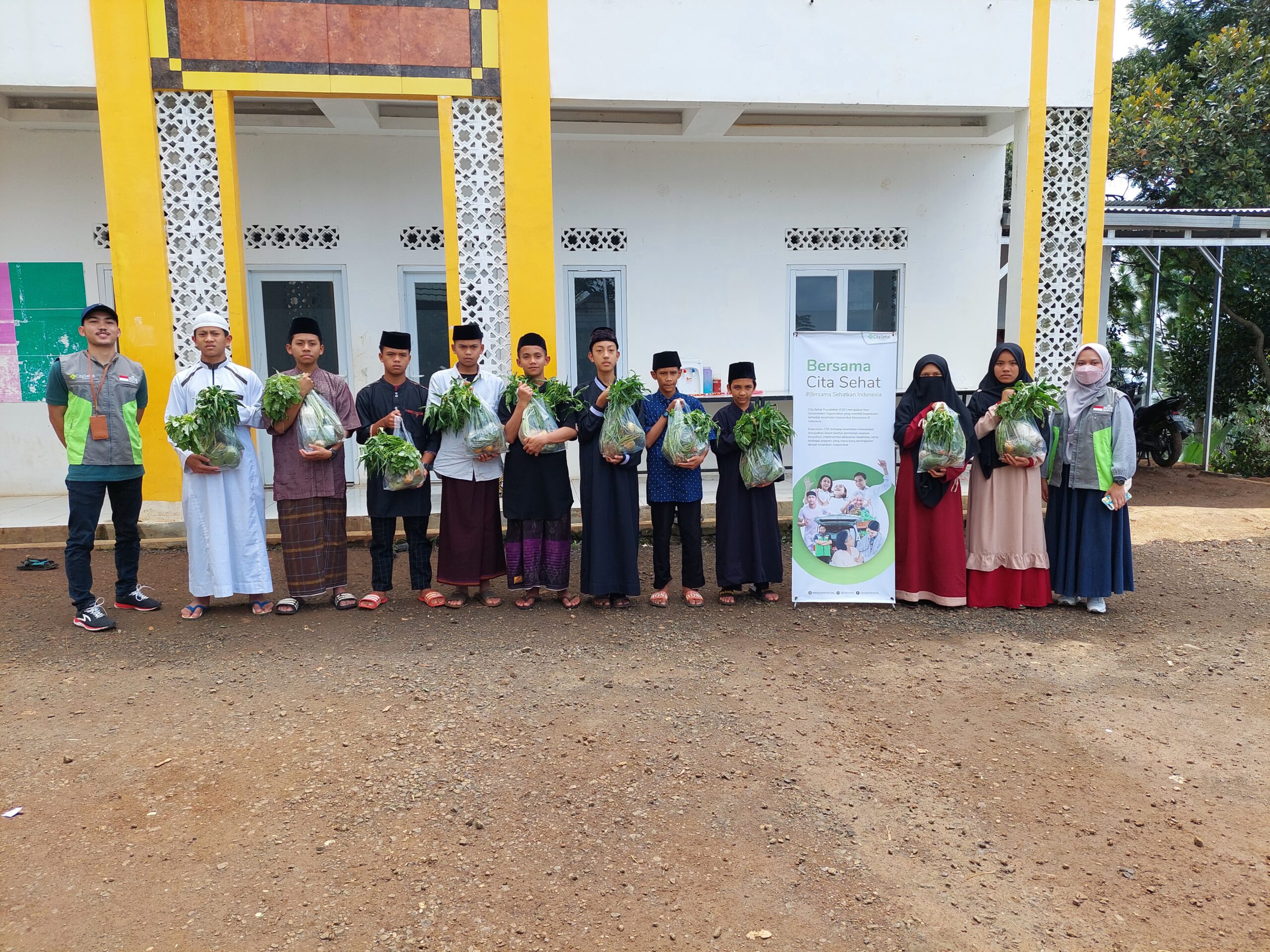SDGs or Sustainability Development Goals is a universal call to end poverty, protect the planet, and ensure that by 2030 everyone enjoys peace and prosperity. This call was realized in 17 interrelated goals designed as a “joint blueprint” established on 25 September 2015 at the United Nations (UN) Headquarters.
The development of all sectors in the SDGs is very dependent on the active role of all stakeholders. Namely central and regional governments, the business world, mass media, social institutions, professional organizations and academics. We often call this five-party collaboration the pentahelix.
Cita Sehat takes a role as a social organization that actively collaborates with many parties in implementing health programs to achieve the SDGs.
Cita Sehat participates in SDGs 2, namely ending hunger, achieving food security, improving nutrition and promoting sustainable agriculture. CSF also contributes to SDGs 3 “Ensuring Healthy Lives and Improving the Well-being of All Populations of All Ages”.
Some of the CSF program activities that contribute to the SDGs in Indonesia are Pratama Clinic, Friends of the Elderly, and TAS Bergizi (Reducing Stunting Rates with nutritious food).
CSF manages the Pratama clinic which is intended for the general public and also for underprivileged people who need it through a curative health assistance program. Pratama Cita Sehat Clinic provides basic health facilities such as General Poly, Dental Poly, KIA Poly (Maternal and Child Health), and delivery at the Surabaya Clinic. Currently, Pratama Cita Sehat Clinic is present in East Jakarta, Semarang, Pekanbaru, Yogyakarta, Surabaya and partner clinics in Medan.
The Cita Sehat Clinic not only provides medical services but also health education as a promotive effort to patients and also the less fortunate communities around the clinic. Through this program we contribute to SDGs 2, namely reducing maternal mortality and reducing infant mortality.
Friends of the Elderly
This program focuses on preventing non-communicable diseases and promotive efforts by providing health education and providing nutritious food to elderly residents with middle to lower economic status. Even though the name of the program is “Friends of the Elderly”, this program also targets the middle age group according to WHO. According to WHO, there are four stages/age limits, namely:
- Middle age (middle age) aged 45-59 years
- Elderly people aged 60-74 years
- Elderly (old) aged 75-90 years
- Very old age > 90 years.
This program will contribute to SDGs 2, namely meeting the nutritional needs of seniors.
TAS Nutritious or Lowering Stunting Rates with Nutritious Food
Stunting and wasting are still big problems in Indonesia at the global level. Therefore, Cita Sehat will continue to make stunting and wasting one of the main programs in the organization’s activities.
This program will focus on promotional activities, namely providing education on the importance of nutritious food for pregnant and breastfeeding mothers. Meanwhile, preventive activities are implemented by providing nutritious food for BGK toddlers (below the yellow line) and more intensive intervention for BGM toddlers (below the red line) at weighing at posyandu.
This program contributes to SDGs 2, namely by 2030 ending all forms of malnutrition, namely stunting and wasting in children under 5 years of age.
Susilowati – Cita Sehat Foundation


